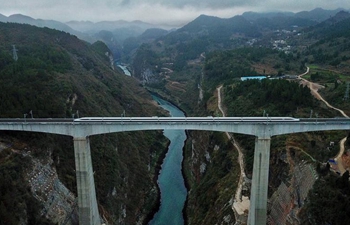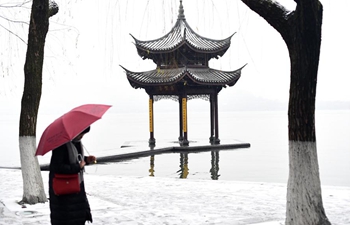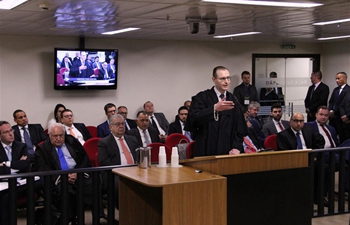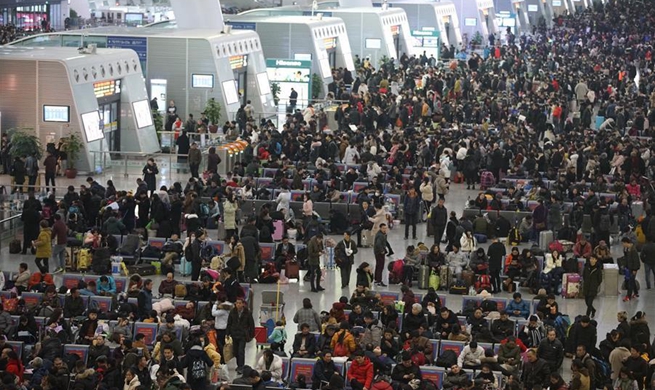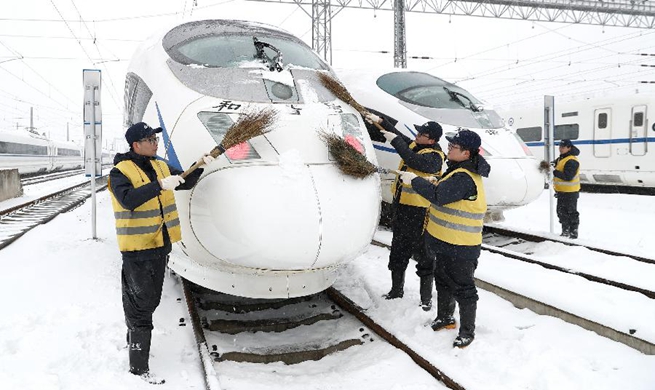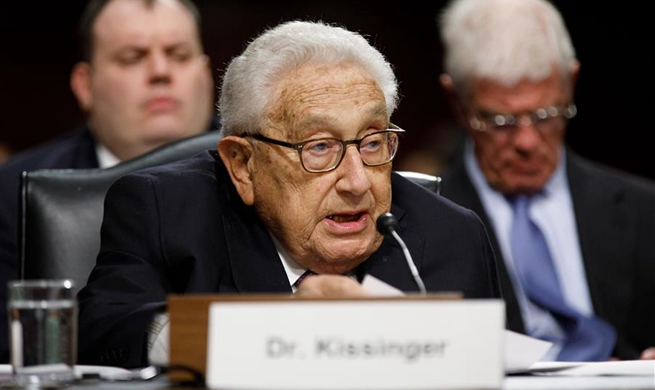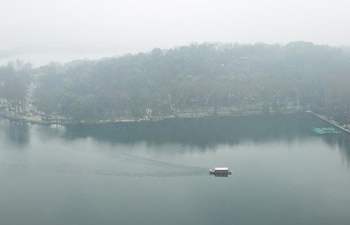by Xinhua writers Zhai Wei, Tian Dongdong
DAVOS, Switzerland, Jan. 26 (Xinhua) -- How intimate did the trans-Atlantic relations use to be? At their best time, they were like a cup of water with honey -- sweet and compatible.
But the chemistry has changed dramatically in the past year, with the beverage somewhat changed into a cocktail of oil and water -- bitter yet immiscible.
In the eyes of some U.S. allies in Europe, President Donald Trump's "America First" policy is steadily drawing Uncle Sam back to the stronghold of protectionism, populism and nationalism.
Trump's trip to Davos makes him the first sitting U.S. president in 18 years to attend the globalist gala. Prior to his trip, Trump sent several senior U.S. officials to tout his "America First" policy on the bully pulpit of globalism.
But his preparation and attendance do little to raise his popularity in Davos, where lukewarm ally leaders and thousands of furious protesters awaited him.
A day before Trump landed in the snowy Swiss town, European leaders including French President Emmanuel Macron and German Chancellor Angela Merkel successively called for a more united and ambitious European Union (EU). For Macron, the EU needs to be more ambitious and "France is back at the core of Europe."h For Merkel, "we need to take our destiny into our own hands." Targeting isolationism, she said: "We need global cooperation, not walls."
Packed with a "very much America First" agenda, Trump would be "100 percent focused" on and committed to promoting policies that "promote strength for American businesses and the American worker," according to White House press secretary Sarah Sanders.
But the European audience might not be as willing to buy his story as they did to Bill Clinton 18 years ago when he became the first U.S. incumbent president to appear in Davos. Disappointed by an increasingly inward-looking and self-centered Washington, they are now more interested in how to make Europe stronger.
Given that, the United States and the EU might talk past each other. Like water and oil in a cup, although they are both in Davos, they are on different layers.
Reasons behind the divide are various, but two of them are the elephant in the room.
For starters, the division is deeply rooted in the divergence of their values. Labeling itself as "a City upon a Hill," the United States has long been taken as the driving engine of globalism, staunch supporter of liberalism and ballast stone of openness. But things have been changed drastically by Trump's "America First" policy.
In addition, the value conflict can spill over into other areas, and the effect has been intensified when national interests are concerned.
On the Iranian nuclear agreement, Trump threatened to withdraw from the pact for alleged "disastrous flaws," while the EU considers the deal as a "considerable diplomatic accomplishment" and should be upheld.
As to security cooperation, the United States has continuously blamed its European allies for "free riding" while the EU believes their contribution has been unfairly underestimated.
As for climate change, Trump moved last year to pull his country out of the Paris accord, while EU leaders like Macron refused to renegotiate a new one.
The "America First" policy does little to bring back those honeymoon days enjoyed between the United States and Europe. On the contrary, it recalls the dark days in Europe when multilateralism was under threat.
"Have we actually learned the lessons of history? We haven't really," Merkel warned in Davos. For many Europeans, if history offers any clue, the globe should always come first as the EU itselft is built on multilateralism.




